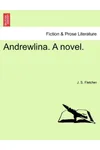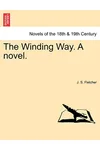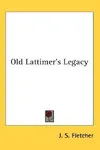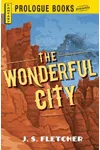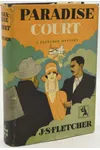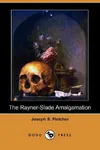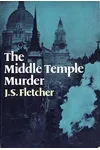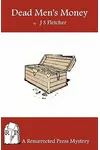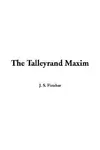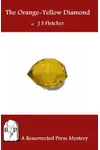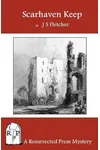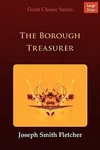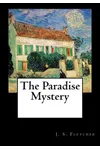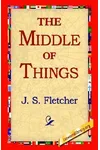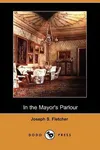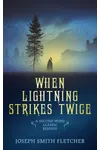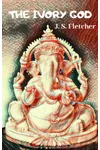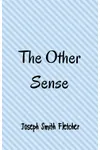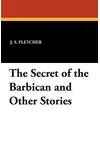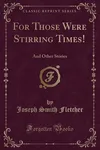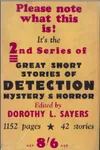Picture a Yorkshire storyteller who spun tales of murder and mystery that captivated readers across the Atlantic—meet J.S. Fletcher! Born in 1863, this prolific British writer churned out over 230 books, from poetry to historical fiction, but it’s his detective novels, like the iconic The Middle Temple Murder, that cemented his legacy in the Golden Age of Detective Fiction. With a knack for intricate plots and vivid Yorkshire settings, Fletcher’s stories are a delightful blend of suspense and charm.
A fellow of the Royal Historical Society, Fletcher’s love for his native Yorkshire infused his work with authenticity, making him a standout in a genre dominated by urban mysteries. Ready to dive into his world of clever sleuths and twisty crimes? Let’s explore the life and legacy of this literary gem!
The Making of J.S. Fletcher
Joseph Smith Fletcher was born on February 7, 1863, in Halifax, West Yorkshire, to a clergyman father who passed away when Fletcher was just eight months old. Raised by his grandmother on a farm in Darrington, near Pontefract, young Joseph soaked up the rural beauty that would later color his novels. Educated at Silcoates School in Wakefield, he briefly studied law before diving into journalism at age 20, working as a sub-editor in London and later for the Leeds Mercury under the pseudonym A Son of the Soil. His early career, including covering Edward VII’s 1902 coronation for the Yorkshire Post, honed his knack for vivid storytelling.
J.S. Fletcher’s Unforgettable Stories
Fletcher’s literary journey began with poetry, like The Juvenile Poems of Joseph S. Fletcher (1879), but he soon pivoted to historical fiction and rural novels inspired by Richard Jefferies, such as The Wonderful Wapentake (1894). His historical novel When Charles I Was King (1892) earned praise as his finest work by critic Michael Sadleir, showcasing his knack for weaving history with drama. But it was in 1914 that Fletcher found his true calling with his first detective novel, launching a prolific career of over 100 crime stories.
His standout, The Middle Temple Murder (1919), follows journalist Frank Spargo as he unravels a bludgeoning in London’s Middle Temple. Praised by President Woodrow Wilson, it became a bestseller and a cornerstone of detective fiction, blending journalistic flair with complex puzzles. Other gems include The Orange-Yellow Diamond (1920), a fast-paced tale of murder in London’s Paddington, and The Paradise Mystery (1920), a cathedral-town whodunit. Fletcher’s signature? Intricate plots, Yorkshire-infused settings, and young, enthusiastic sleuths like private investigator Ronald Camberwell, who starred in many of his later works.
Unlike strict Golden Age contemporaries, Fletcher’s mysteries often pre-dated the era’s rigid rules, favoring adventure and fraud cases over formulaic whodunits. His journalistic background brought urban realism to his tales, while his love for Yorkshire added vibrant rural backdrops, making his stories both grounded and thrilling.
Why J.S. Fletcher Matters
Fletcher’s influence on detective fiction is undeniable. The Middle Temple Murder set a template for the genre, with its journalist-sleuth paving the way for later detective archetypes. His ability to blend Yorkshire’s rugged charm with London’s gritty realism captivated readers in the UK and US, earning him a spot in Howard Haycraft and Ellery Queen’s Definitive Library of Detective Fiction. Though his fame has faded compared to Agatha Christie’s, his ebooks are enjoying a revival, delighting new readers with their rip-roaring adventures and dry humor.
Fletcher’s personal life, marked by his 1927 marriage to Irish writer Rosamond Langbridge and the tragic loss of their son Wilfrid in World War I, added depth to his storytelling. His legacy endures in his vivid characters and the Yorkshire landscapes that leap off the page, proving that a good mystery never goes out of style.
- Born: February 7, 1863, Halifax, West Yorkshire
- Died: January 30, 1935, Surrey
- Key Works: The Middle Temple Murder, The Orange-Yellow Diamond, The Paradise Mystery
- Notable: Fellow of the Royal Historical Society
Snag The Middle Temple Murder and dive into J.S. Fletcher’s thrilling world of Yorkshire mysteries and clever sleuths!
